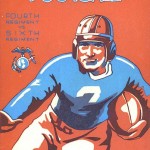The latest poll confirms a definition of evangelicalism that many people find congenial:
The NAE/LifeWay Research definition includes four statements to which respondents would strongly agree in order to be categorized as evangelical:
— The Bible is the highest authority for what I believe.
— It is very important for me personally to encourage non-Christians to trust Jesus Christ as their Savior.
— Jesus Christ’s death on the cross is the only sacrifice that could remove the penalty of my sin.
— Only those who trust in Jesus Christ alone as their Savior receive God’s free gift of eternal salvation.
The NAE board of directors adopted the evangelical beliefs research definition at its Oct. 15 meeting.
The National Association of Evangelicals should find this reassuring since its brand of born-again Protestantism, from the World War II era, tried to contain Protestants outside the mainline churches without giving away too much but also without making the walls too high. Doctrinal, but only slightly more than liberal Protestants.
The curious part of these findings, however, are the number of Roman Catholics who self-identify as evangelical:
The report found that 41 percent of self-identified evangelicals fall outside the new definition of evangelical belief, and 21 percent of those who disavow the evangelical label have beliefs that actually fall within the evangelical definition, reports Facts & Trends. It also notes:
23 percent of Catholics and 47 percent of Protestants hold evangelical beliefs.
46 percent of Americans who attend church at least weekly hold evangelical beliefs.
39 percent of those who identify themselves as Christians hold evangelical beliefs.
Americans with a high school education or less are most likely to hold evangelical beliefs. Forty percent of those with no more than a high school education strongly agree with all four statements, compared to 26 percent of those with some college, 22 percent of those with bachelor’s degrees, and 18 percent of those with graduate degrees.
How a Roman Catholic could hold that the Bible is the highest authority is a mystery. Don’t all those claims of papal supremacy mean anything?
It turns out, though, that the context of the United States does odd things to all Christians. And it may explain why the phenomenon of evangelical Roman Catholicism is bound up with the fortunes of electoral politics:
Evangelicals have been relatively predictable in the past few elections, while Catholics have been less so. Although Catholic voters have historically tended to be Democratic, recent elections have shown them to be the ultimate swing vote. They backed Al Gore in 2000 (50 percent), George W. Bush in 2004 (52 percent), Barack Obama in 2008 (54 percent) and again in 2012 (50 percent), according to the Pew Research Center.
Evangelicals, on the other hand, have been much more consistently Republican — 79 percent for Mitt Romney in 2012, 73 percent for John McCain in 2008 and 79 percent for Bush in 2004.
The newfound Catholic appeal among the GOP can be seen in the number of high-profile conversions to Rome. Jeb Bush, who comes from a classic blue-blood Episcopal family dynasty, converted to Roman Catholicism years ago. Louisiana Gov. Bobby Jindal was raised Hindu but converted to Catholicism. Kansas Gov. Sam Brownback converted to Catholicism, but his wife and family still attend evangelical churches. And former House Speaker Newt Gingrich, who was a Southern Baptist for most of his life, converted to his third wife’s Roman Catholicism in 2009.
More than 50 years after John F. Kennedy’s Catholicism stirred fears that he would be more loyal to the pope than to the people, Catholicism isn’t nearly the political liability it once was.
This puts a different spin on the “Francis Effect.”












